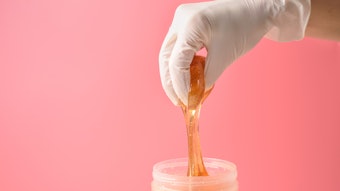Editor's note: All spas focus on wellness to some extent. If you want to help your clients continue feeling good in between spa visits, recommend that they focus on adding feel-good foods to their diets, and pass on the following advice about how to do it from Harvard Medical School.
About half of Americans routinely take multivitamin and multimineral supplements. Yet there is no compelling evidence to support this practice, explains Vitamins and Minerals: Choosing the Nutrients You Need to Stay Healthy, a Special Health Report from Harvard Medical School. This report will help clients determine whether they're getting enough vitamins and minerals from their diets—and what to do if they aren't. The take-home message? Spend time and money improving the diet, which is more likely to pay off than popping a pill.
Vitamin and mineral supplements deliver only a tiny fraction of the biologically active compounds in food. From apples to zucchinis, all fruits, vegetables, whole grains, and other plant-based foods deliver hundreds of nutrients besides vitamins and minerals that might improve your health. Broccoli, for example, contains isothiocyanates, which may have anti-tumor properties, but you aren't likely to find them in a vitamin and mineral supplement.
Fruits and vegetables are some of the best sources of vitamins, minerals, and other healthful phytochemicals. Yet most Americans don’t eat nearly the recommended amounts of fruits and vegetables. Here are some suggestions to boost your intake.
Set a goal. Start by eating one extra serving of fruit or vegetable a day. When you’re used to that, add another and keep going. For example, add fruit to your breakfast cereal. Then try eating fruit for an after-lunch snack. Next, add at least one vegetable to your dinner plate.
Be sneaky. Adding finely grated carrots or zucchini to pasta sauce, meat loaf, chili or a stew is a simple way to get an extra serving of vegetables.
Try something new. It’s easy to get tired of apples, bananas, and grapes. Try a kiwi, mango, fresh pineapple, or some of the more exotic choices now found in many grocery stores.
Be a big dipper. Try dipping vegetables into hummus or another spread. Slather peanut butter on a banana or slices of apple.
This updated Special Health Report also covers these topics:
- Vitamins and minerals: The basics
- Making sense of scientific studies
- Should you take a vitamin or mineral supplement?
- Beyond vitamins: Fish oils and phytochemicals
- Does your diet deliver the vitamins, minerals, and other nutrients you need?
Vitamins and Minerals is available for $18 from Harvard Health Publications, the publishing division of Harvard Medical School. Order it online at www.health.harvard.edu/VM or by calling 877–649–9457.










